Venus Beauty Institute**** 1999
http://en.wikipedia.org/wiki/Venus_Beauty_Institute

Nadine works in a beauty parlor in Paris. Aware of her fading beauty, she dates casually, but is fearful of the pitfalls of serious
relationships. Her co-workers are the popular Samantha and young Marie, who is intrigued by a well-off widower who has
become a regular customer. When Nadine is jilted in public, a man who sees her follows her to the salon and declares
his love for her. Along with such amorous problems, Nadine deals with various customers, from the sympathetic to the crazy.
Vigil in the Night**** 1940
http://en.wikipedia.org/wiki/Vigil_in_the_Night
VIDEO
http://www.youtube.com/watch?v=NwGL08SeZr0
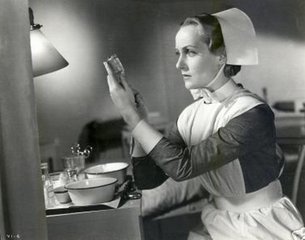
When her sister Lucy's negligence results in the death of a patient, devoted nurse Anne Lee shoulders the blame to save Lucy's honor because
the girl has entered the nursing profession solely to please her. Dismissed for negligence, Anne moves to the town of Hepperton, where she
finds a job in a large but poorly equipped hospital. There she is befriended by Matron East, the dour but diligent matron of nurses, and Dr.
Prescott, who struggles against the deplorable conditions of the hospital to relieve the suffering of the sick. One night, when Anne's quick
thinking saves the lives of the victims of a bus accident, Anne and Prescott become better acquainted. He confides his dreams for a new
hospital but concedes that it has little chance of becoming a reality because of the opposition of Matthew Bowley, the miserly chairman of the
hospital board. Soon afterward, Bowley becomes a problem for Anne when his wife overhears him making amorous advances to her and
threatens a scandal unless Anne is fired. Dismissed once again, Anne goes to London to join Lucy, who has gotten married, but upon her arrival,
she learns that Lucy has left her husband and is facing charges of negligent homicide in conjunction with the death of a patient at the nursing
home in which she was working. After Prescott comes to London and testifies on her behalf, Lucy is cleared of all charges. To redeem herself,
Lucy then decides to go to Hepperton to fight a virulent epidemic that has broken out there. Anne goes with her and takes charge of the
isolation ward. When Bowley refuses the funds for necessary supplies, Anne defies him and orders them anyway. Bowley's attitude changes
when his own son falls ill and Lucy contracts the disease by giving the boy mouth-to-mouth resuscitation to save his life. Lucy's death makes
Anne more determined to uphold the ideals of her profession, and with Bowley's funding, she and Prescott begin to build their new dream
hospital.
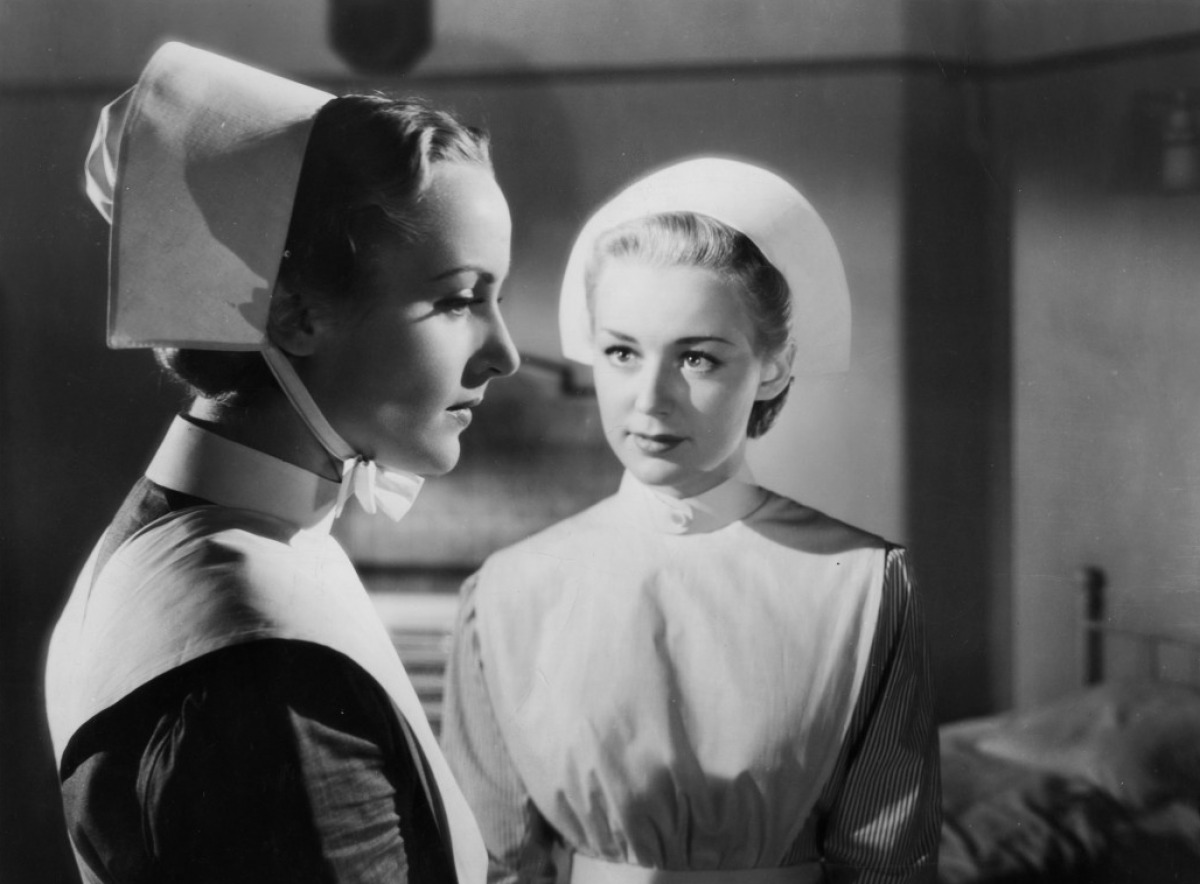
Virgin Spring, The***1/2 1960
http://www.tcm.com/this-month/article/337165%7C0/The-Virgin-Spring.html
http://www.youtube.com/watch?v=h82_I4kH6H8
The Virgin Spring is a film so graceful, subtle and omniscient that when we experience powerfully emotional moments, we haven't
even expected them, and when we have, it's already hit us. With every detail of every department, the result is utter simplicity,
utter docility, no fluctuation in the face of whatever brutality or emotional quakes, making them all that much more profoundly
moving. The story reveals and illustrates the characters up until the fatal flaw causes the end of the movie to be inevitable, but
we never saw that particular element that way, because everything is utterly natural.
Its pitch-perfect genuine bloom is the effect of the film being pared down to its barest intentions. And these are not only
fundamental questions, but fundamental questions in a time and place in history where needs and desires were purely
fundamental. The characters, existing in medieval Sweden, could have no concept of how complicated human beings' intentions
could be as they are in modern times. It begins with a prosperous Christian whose daughter, Karin played by Birgitta Pattersson,
is appointed to bring candles to the church. This is a big deal around here. Karin is accompanied by her pregnant foster sister,
Ingeri played by Gunnel Lindblom, who secretly worships a Norse pagan God. What conflict! What happens from there, I will not
say. But anywhere you may read about this film you will see that it was the basis for Wes Craven's exploitation flick The Last
House on the Left, but in that exploitation of a genuine bloom of grace, the ensuing turning points in the plot achieve the exact
opposite effect in every way I've explained. When you see The Virgin Spring, you will be presented with people who search for
the same answers and consolations most of us still seek today. Even if a viewer would sooner find themselves watching Craven's
film than anything by Ingmar Bergman, once they would get around to The Virgin Spring, they'd find themselves subjected to an
unexpected, and wholly memorable, experience more rare than the later film.
Max Von Sydow's performance is truly unforgettable in every sense of the word, burning every line of his ultimate soliloquy into
you with an impact lasting longer than the movie or the day you see it. He is a giant, unabashedly masculine yet incapable of
artifice. Even so, he stands out no more than any other actor, all of whom beautifully share the screen with one another,
which emboldens the impact of where his character goes.
Ulla Isakkson's story yields a multitude of moral examinations in our minds. There are certain peculiar characters who have no
human sympathy and are unashamed of a laundry list of barbarities. Bergman shows the Christian Orthodox family spending
every waking moment preoccupied with purity, altruism and decency in the eyes of the god they passionately look to with faith
that the world they live in is inherently good and just. Their concept of evil is the notion of a Pagan god. How are they to act
when crossing paths with the former set of characters?
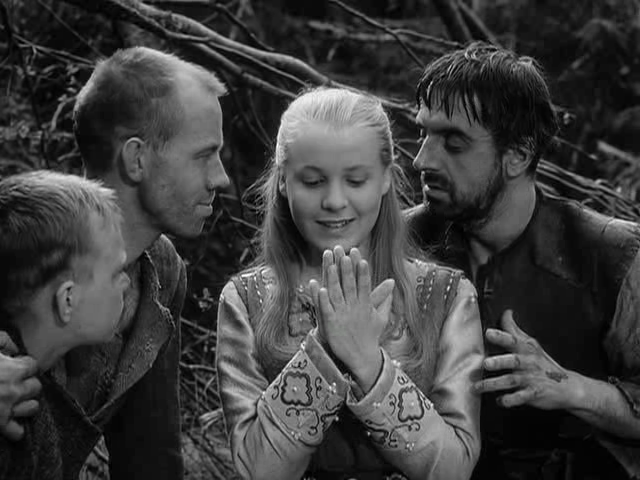
Birgitta Pettersson, as Karin, with Axel Duberg, Allan Edwall, Tor Isedal
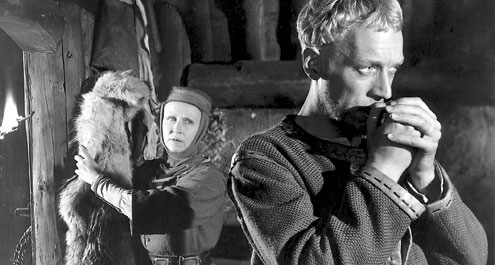
Max Von Sydow and Birgitta Valberg
Virginia City***1/2 1940
When I viewed this film I was expecting just another Hollywood western...however when I saw that
three of the leads were Humphrey Bogart, Errol Flynn and Miriam Hopkins, I thought that maybe there
respective styles would create a very effect. The film casts a very different shadow on the Civil War,
and very effectively blurs the line between the adversaries. Hopkins plays a dance-hall girl of great
sophistication, Flynn plays a Union soldier who plays fair, and Bogart plays a Mexican bandit. The film is
a little melo-dramatic but is appropriately moralistic and entertaining.
http://www.errolflynn.net/Filmography/vc.htm
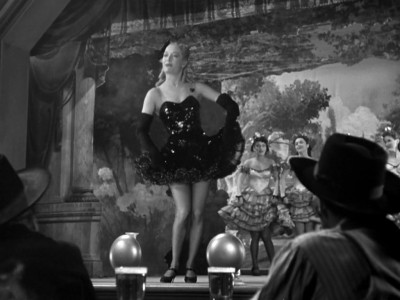
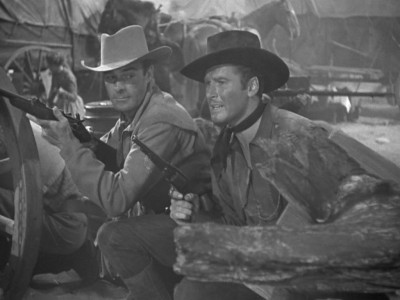
Promoted as a follow-up to the popular 1939 western Dodge City (which, indeed, was left wide open for a sequel in its closing
scenes), Virginia City bears only surface resemblance to the earlier film. Indeed, the only discerning links between the two
pictures are the western setting and the presence in the cast of Errol Flynn, Frank McHugh, Alan Hale and Guinn "Big Boy"
Williams. After escaping from a Confederate prison during the Civil War, Union officer Flynn vows to stop a $5,000,000 gold
shipment from reaching the South. He is challenged by Southern sympathizer Randolph Scott, whose interest in the gold is
patriotic, and by outlaw Humphrey Bogart (complete with a Mexican accent that wouldn't convince a cow), whose interests are
purely mercenary. Adding spice to the proceedings is Miriam Hopkins as a dance hall chanteusse-cum-Confederate spy. Better
in individual components than sum total, Virginia City pleased the crowds in 1940, assuring that the Tasmanian-born Errol
Flynn would continue appearing in westerns in the future. ~ Hal Erickson, All Movie Guide
Virgin Suicides, The**** 1990
http://www.rottentomatoes.com/m/virgin_suicides/

A dark comedy punctuated by moments of drama, The Virgin Suicides explores the emotional underpinnings of a family starting
to come apart at the seams in 1970's Midwestern America. The Lisbons seem like an ordinary enough family; Father (James
Woods) teaches math at a high school in Michigan, Mother (Kathleen Turner) has a strong religious faith, and they have five
teenage daughters, ranging from 13-year-old Cecilia (Hannah Hall) to 17-year-old Therese (Leslie Hayman). However, the
Lisbon family's sense of normalcy is shattered when Cecilia falls into a deep depression and attempts suicide. The family is
shaken and Mother and Father seek the advice of psychiatrist Dr. Hornicker (Danny DeVito), who suggests the girls should
be allowed to socialize more with boys. However, boys soon become a serious problem for Cecilia's sister Lux (Kirsten Dunst).
Lux has attracted the eye of a high-school Romeo named Trip (Josh Hartnett), who assures Father of his good intentions. But
Cecilia finally makes good on her decision to kill herself, throwing the Lisbons into a panic; and after attending a school dance,
Trip seduces and then abandons Lux. The Lisbons pull their daughters out of school, as an emotionally frayed Mother keeps
close watch over them. Meanwhile, Lux continues to attract the attentions of the local boys, and she responds with a series of
clandestine sexual episodes with random partners as often as she can sneak out of the house.
The debut feature from Sofia Coppola (whose father, Francis Ford Coppola, co-produced this film), The Virgin Suicides also
features supporting performances from Scott Glenn and Giovanni Ribisi. The film was shown as part of the Directors Fortnight
series as the 1999 Cannes Film Festival. ~ Mark Deming, All Movie Guide
5.
Waiting for Guffman ****1/2 1996
http://www.dvdmg.com/waitingforguffman.shtml
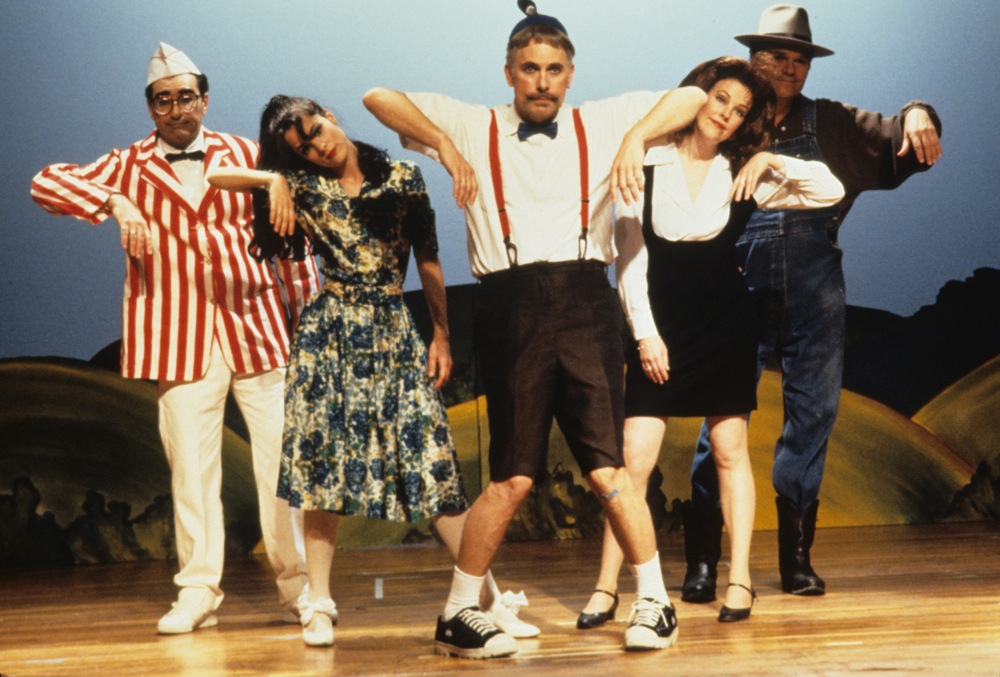
The movie is a parody of community theater set in the small, fictional town of Blaine, Missouri. It chronicles the trials and
tribulations of a handful of utterly delusional residents as they prepare to put on a community theater production led by
eccentric director Corky St. Clair, played by Christopher Guest. The show, a musical chronicling the town's history, titled Red,
White and Blaine, is to be performed as part of the town's 150th anniversary celebration.
Along with Guest, the film stars Catherine O'Hara and Fred Willard as Ron and Sheila Albertson, a pair of married travel agents
(yet have never traveled outside of Blaine) who are also regular amateur performers, and give their companions a little too
much information at a restaurant dinner; Parker Posey as the perpetual Dairy Queen employee Libby Mae Brown; Bob Balaban
as Lloyd Miller, the increasingly frustrated musical director who actually possesses some talent; Lewis Arquette as Clifford
Wooley, a "long time Blaineian" and retired taxidermist who is Red, White and Blaine's bean-loving narrator; Matt Keeslar as
the handsome and oblivious mechanic Johnny Savage for whom Corky goes out of his way to get into the play; and Eugene
Levy as Dr. Alan Pearl, a tragically square dentist determined to discover his inner entertainer. Brian Doyle-Murray appears
briefly as Savage's dad and boss who is immediately suspicious of Corky's eccentric behavior.
Corky has presumably used connections gained from his "off-off-off-off" Broadway past to invite Mort Guffman, a Broadway
producer, to critique Red, White and Blaine. Corky leads the cast to believe that a positive review from Guffman could mean
that the group can take their show all the way to Broadway. The program itself is designed to musically retell the history of
Blaine, whose founding father was a buffoon incapable of distinguishing the geography of middle Missouri and the Pacific
coastline. We also learn why the town refers to itself rather obtusely as "the stool capital of the United States." The music
contained within is a series of grating and poorly performed songs such as "Nothing Ever Happens on Mars" (a reference to the
town's supposed visit by a UFO), and "Stool Boom". The DVD contains "This Bulging River" and "Nothing Ever Happens
in Blaine," which were edited from the cinema release.
Central to the film are Corky St. Clair's stereotypically gay mannerisms. He supposedly has a wife (called Bonnie), whom no-one
in Blaine has ever met or seen. When Johnny Savage is forced by his suspicious father (Brian Doyle-Murray) to quit the show,
Corky takes over his roles, which were clearly intended for a young, masculine actor: a lusty young frontiersman, a heartbroken
soldier, and a little boy wearing a beanie and shorts. St. Clair never sheds his dainty demeanor, lisp or earring in spite of his
historical roles, and his face is pasted with an overkill of stage rouge and eyeliner. Corky is also faced with creating his magic
on a shoestring budget, and at one point quits the show after storming out of a meeting with the City Council, who turns down
his request for $100,000 to finance the production. But the distraught cast and persuasive city fathers convince Corky to
return to the show (to the disappointment of Lloyd Miller, who had taken over in Corky's absence).
At the show's performance, Guffman's seat is seen to be empty, much to the dismay of the cast; Corky assures them that
Broadway producers always arrive a bit late for the show, and sure enough a man (Paul Benedict) soon takes Guffman's
reserved seat. The show is well-received by the audience, and St. Clair invites the assumed Guffman backstage to talk
to the actors. Upon arriving, he declares that he is not Guffman, and had come to Blaine to witness the birth of his niece's
baby but enjoyed the show. Corky then reads a telegram stating that Guffman's plane was grounded by snowstorms in New
York (though it is in the summer).
An epilogue shows the fates of the cast: While Libby Mae has returned yet again to the Dairy Queen, Dr. Pearl and the
Albertsons have both pursued their dreams of being entertainers: Ron and Sheila travel to Hollywood to work as extras, and Dr.
Pearl now entertains elderly Jews in Florida retirement communities. Corky has returned to New York, where he has opened
a Hollywood-themed novelty shop, which includes such items as Brat Pack bobblehead dolls, My Dinner with Andre action figures,
and The Remains of the Day lunch boxes. When Corky is showing his collection, a Charlie Weaver doll can be seen. Charlie
Weaver aka Cliff Arquette was Lewis Arquette's dad.
Wait Until Dark**** 1967
http://www.moviefone.com/movie/wait-until-dark/5575/synopsis
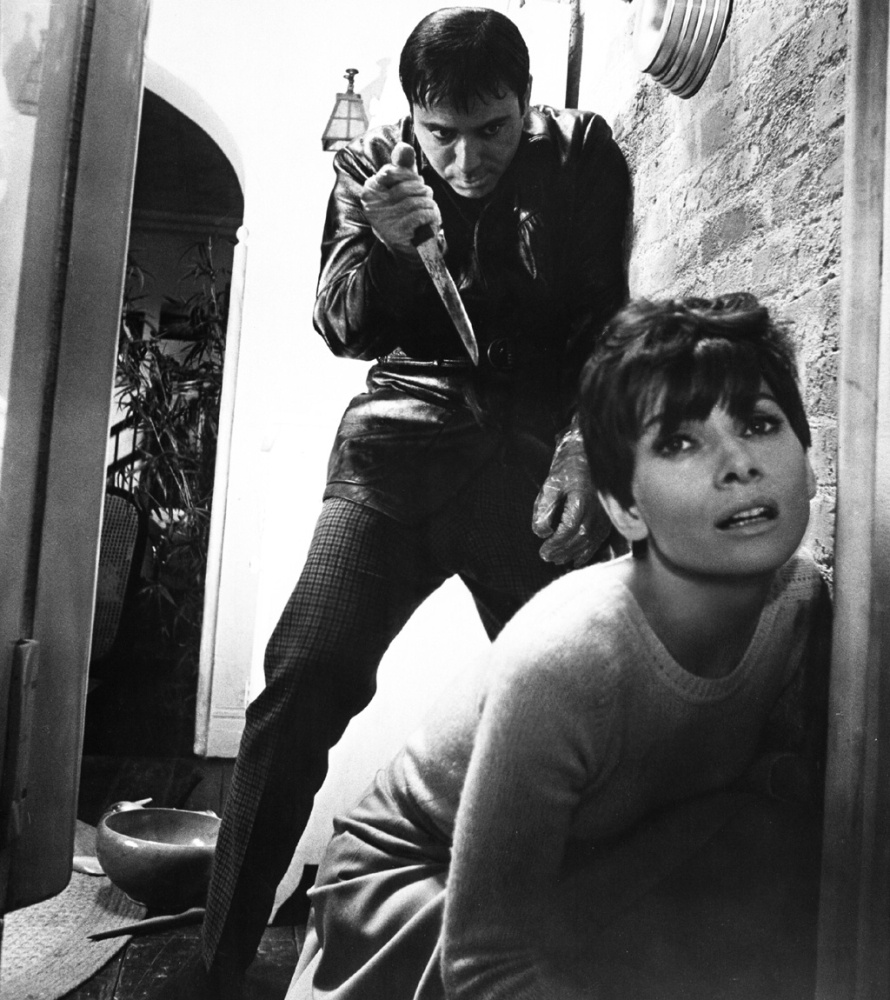
Susie, a recently blinded woman is unwittingly in possession of a doll filled with drugs. A very mean
narcotics dealer concocts an elaborate scheme to trick her into handing it over to him. The two crooks
pretend to be an old friend of Susie's husband while her husband is away and together the crooks
invent a story of a police investigation of her husband that only the discovery of the now missing doll
can save him from. Susie's blindness is the key to them searching the apartment for the doll. A great
psychological thriller with a twist: the audience knows exactly what's happening but gets to watch the
heroine try to figure it out on her own. There's almost no explicit violence in this movie, yet there's an
underlying current of foreboding and suspense that literally permeates the entire film. You know
something very bad is going to happen. Alan Arkin gives the performance of a lifetime as the cool,
calm, collected psychopath killer who truly enjoys hurting people. As his stalking of Susie becomes
more and more obvious as the story unfolds, it leaves us with the question, how does a blind woman
defend herself?
Walk on the Wild Side**** 1962
http://www.tcm.com/mediaroom/video/465104/Walk-On-The-Wild-Side-Movie-Clip-You-Gotta-Learn.html
VIDEO
http://en.wikipedia.org/wiki/Walk_on_the_Wild_Side_(film)
This moody and controversial drama takes place in Depression-era New Orleans. Dove (Laurence Harvey) has traveled by bus from Texas to find
his wayward lover Hallie (Capucine). He meets young Kitty Twist (Jane Fonda) as the two get off in the crescent city. Teresina (Anne Baxter) gives him
a job at her small cafe. In his free time, Dove searches for Hallie and finds her at work as a prostitute in the Doll's House. Dove implores Hallie to return
to him but she refuses. When the lecherous lesbian madame Jo (Barbara Stanwyck) discovers Dove's intentions towards Hallie, she has him beaten to
a bloody pulp by her hired goons. He is found by Kitty, now a happy hooker at the Doll House, and is taken back to the cafe where the compassionate
Teresina heals his physical and emotional wounds. The film taken from the novel by Nelson Algren is much tamer than the original text. The title track, sung
by Brook Benton, was nominated for an Academy Award. The "black-cat stalking" opening and closing sequences (by designer Saul Bass) is a perfect little
"film-within-a-film." This footage, with its superb lighting, framing, panning, and editing, should be appreciated by anyone who wants to know more about the
art of cinematography. ~ Dan Pavlides, Rovi
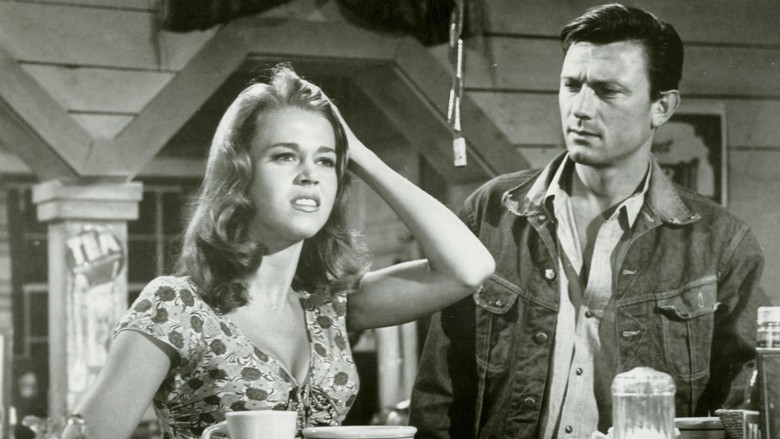
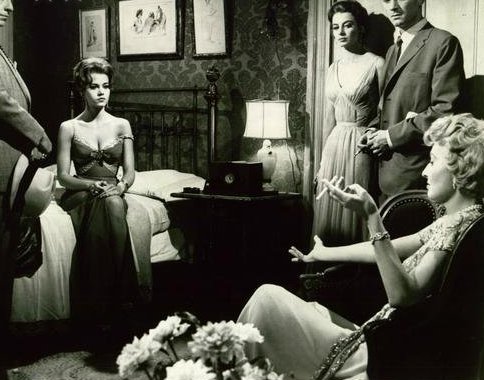
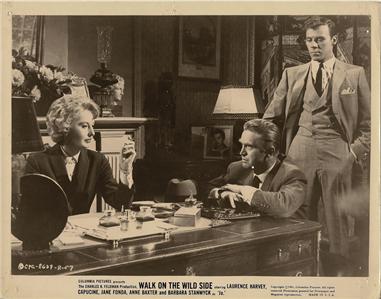
Waterloo Bridge**** 1940
http://dustedoff.wordpress.com/2009/09/28/waterloo-bridge-1940/
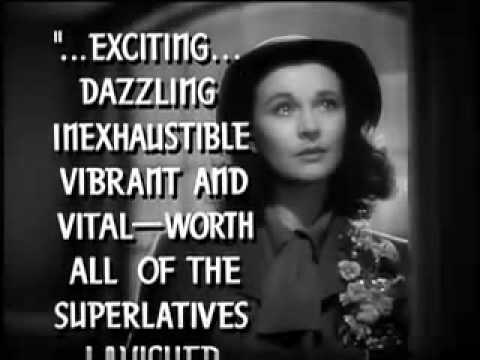
On his way to France to fight in World War II, Colonel Roy Cronin stops his cab on London's Waterloo Bridge and reflects on the
past: It is 1914 and air raid sirens screech as a group of young girls hurry past, seeking shelter. One drops her purse and Roy
helps its owner, Myra Lester, a beautiful ballet dancer, to retrieve it. They seek shelter together and a whirlwind wartime
courtship follows, resulting in Roy asking Myra to marry him. Before the ceremony can be performed, however, Roy is called to
the front and Myra is fired for her impetuousness by Madame Olga Kirowa, the troupe's tyranical ballet mistress. When Myra's
friend Kitty sticks up for her, Madame Kirowa also fires her. Unable to find work in another ballet or show, the two dancers soon
find themselves broke and hungry. One afternoon, Myra is supposed to meet Roy's aristocratic mother for the first time. While
waiting, Myra sees a notice about Roy's death in the newspaper and faints. When Lady Margaret arrives, Myra cannot tell her
the terrible news, and her erratic behavior shocks and angers Roy's mother, who leaves in disgust. Myra then falls ill and lies
close to death from grief. To earn money to cover her friend's medical expenses, Kitty drifts into street walking. When Myra
recovers, she is touched by her friend's sacrifice, and with no desire to live, she, too, becomes a prostitute. One year later,
Roy returns to London, and the first sight that he sees upon getting off the train is Myra, who has come to pick up soldiers. He
believes that she has come to meet him, and knowing nothing of her life in the past year, takes her home to his family estate
in Scotland. Although Myra tries to convince herself that they can be happy, she soon realizes that her past will ruin Roy's life
and, after confessing all to his mother, she runs away. Roy follows, despite Kitty's revelations about Myra, but she eludes him
and kills herself by throwing herself in front of an onrushing truck on Waterloo Bridge. Clutching the good luck charm that he
had once given Myra, Roy leaves for the front. ![]()
Way Down East***** 1920
http://en.wikipedia.org/wiki/Way_Down_East
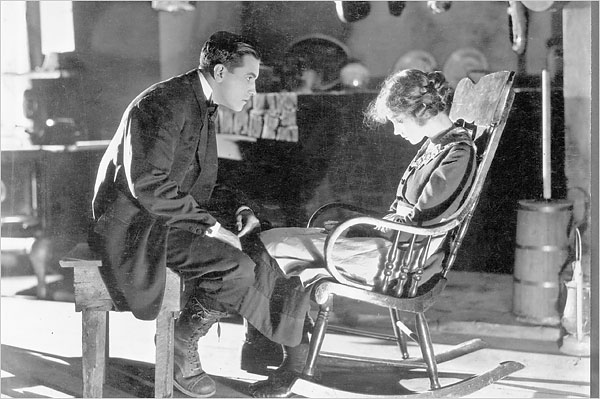
Faced with financial difficulties, innocent country girl Anna Moore goes to visit her rich Boston relatives, the Tremonts, to seek aid.
There she becomes the victim of a false marriage to playboy Lennox Sanderson. Deserted by the man she thought was her husband,
Anna is left penniless and alone to face the birth of her nameless child. After her mother's death, Anna takes refuge in a rooming
house in Belden where her baby dies. Turned out by an unsympathetic landlady, the brokenhearted mother finds employment at the
farm of Squire Bartlett, a stern but just man, who believes in a strict accounting for sin. The squire's son David falls in love with
Anna, and she is about to accept her new found happiness when Sanderson appears and the squire learns that Anna had lived with
him in sin. He turns the girl from the house in a blinding snow storm, and hysterical, she stumbles onto the frozen river where she
faints. Her rescue by David from the drifting ice and certain death brings about their union after the squire and his wife learn
Anna's true story.
Welcome to the Sticks***** 2008
http://www.abc.net.au/atthemovies/txt/s2361573.htm
http://www.guardian.co.uk/film/2008/jul/21/french.cinema
Although living a comfortable life in Salon-de-Provence, a charming town in the South of France, Julie has been feeling depressed for a while.
To please her, Philippe Abrams, a post office administrator, her husband, tries to obtain a transfer to a seaside town, on the French Riviera, at
any cost. The trouble is that he is caught red-handed while trying to scam an inspector. Philippe is immediately banished to the distant unheard
of town of Bergues, in the Far North of France. Leaving his child and wife behind, the crucified man leaves for his frightening destination, a dreadfully
cold place inhabited by hard-drinking, unemployed rednecks, speaking an incomprehensible dialect called Ch'ti. Philippe soon realizes that all
these ideas were nothing but prejudices and that Bergues is not synonymous with hell... Written by Guy Bellinger
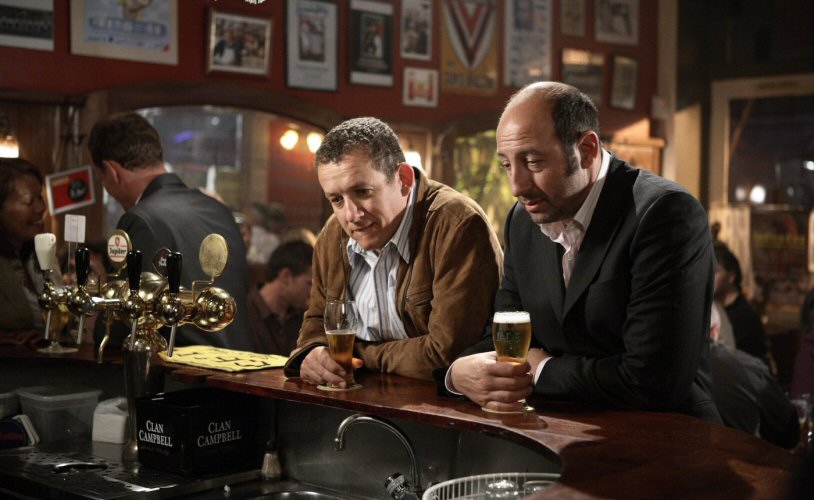
What About Bob?***
http://en.wikipedia.org/wiki/What_About_Bob%3F
VIDEO
http://www.youtube.com/watch?v=L8Gkes9CDBk
In this comedy about a doctor-patient relationship pushed way beyond the office, Bill Murray plays Bob Wiley, a neurotic New Yorker struggling with a
whirlwind of paralyzing phobias. When an exasperated colleague pawns the handful off on Dr. Leo Marvin (Richard Dreyfuss), the psychologist has no
idea his last appointment will follow him north to New Hampshire on a month's vacation. Bob takes to Dr. Marvin's latest book like no therapy before it,
so the well-meaning pest tracks Marvin down at his lakeside summer home to further discuss his problems. But Marvin, preparing for an interview on
Good Morning America and a few weeks of R and R, views Bob's stalking as highly inappropriate, and demands he return to New York. But Bob can't take
even the strongest hint, and sets up camp with a neighbor to indulge in his own "vacation" -- from his problems. Meanwhile, Marvin's son Sigmund
(Charlie Korsmo), daughter Anna (Catherine Erbe), and wife Fay (Julie Hagerty) take to Bob's loopy charm, which Marvin views as an irritating threat.
Marvin's temperature rises as Bob insinuates his way into the family, helping Sigmund learn to dive and counseling the previously ignored Anna.
As Bob's stock continues to rise, and his to plummet, Marvin becomes increasingly unhinged as the minutes tick down to the interview.
~ Derek Armstrong, Rovi
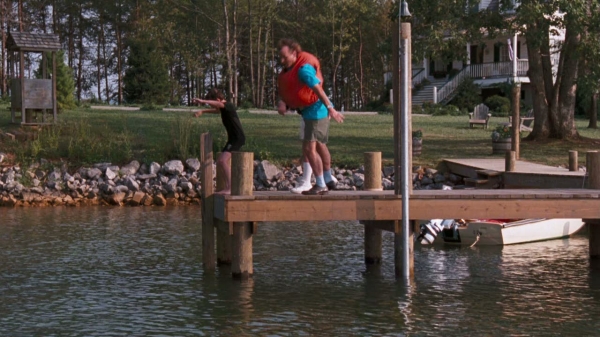
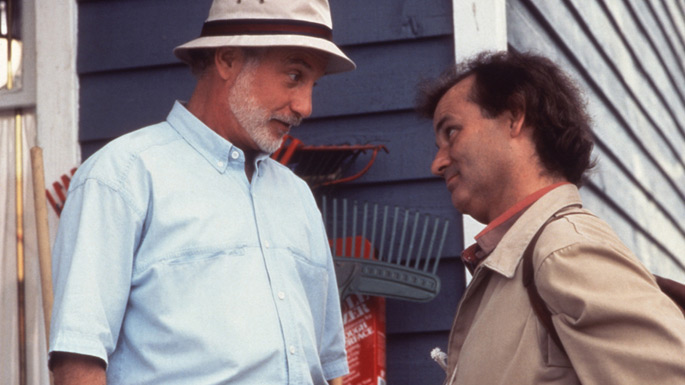
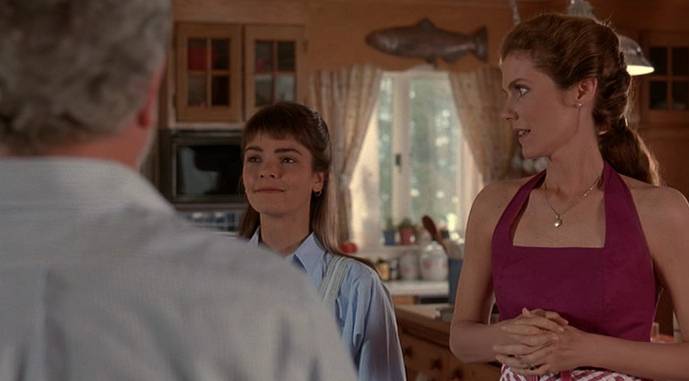
What Dreams May Come****1998
http://en.wikipedia.org/wiki/What_Dreams_May_Come_%28film%29

If I wanted to be cynical about this film, I could say that the moral is not to get out of the car and help at the scene of an accident.
That's what gets Chris Nielsen (Robin Williams) killed. Of course, I'm not giving anything away here, since this happens at the
beginning of the movie, after a short prologue that offers glimpses of Chris' marriage to his wife, Annie (Annabella Sciorra). In
more than a decade of bliss, there was only one dark period. Four years ago, Chris and Annie's two children, Marie (Jessica Brooks)
and Ian (Josh Paddock), died in a car crash and now, tragically, Chris has joined them. One moment, he's trying to help someone
trapped in a wreck; the next, he's making his way into the light. As it turns out, the afterlife isn't what Chris expected. To begin
with, he has a guide - an old mentor named Albert (Cuba Gooding Jr.). He spends some time wandering around on Earth -
looking in at his funeral, checking on his grief-stricken wife, and generally seeing how the world is progressing without him.
Eventually, when he realizes that his continued ghostly presence is causing Annie pain, he quits this realm and heads into heaven, a
place of colors, light, and beauty. But Chris is not content. Even the realization that he can again meet with his children is not
enough. Then an event occurs that threatens to sever his connection with Annie forever.
What Dreams May Come has the sensibilities of an art film placed into a big-budget feature with an A-list cast. Although it is
undeniably a tear-jerker, it's probably not mainstream enough to enthrall audiences and assure a big return at the box office. It is
arguably too offbeat. The storyline, which has Chris relishing the serenity of heaven before taking a trip through hell, is compelling,
even if the ending is a little too cute. Part of the reason the movie works is that the characters are likable. Most of us would love
to have the kind of relationship that Chris and Annie enjoyed, so it's not hard to root for them to somehow find each other again,
even with the chasm of death dividing them. Also, the production design is truly amazing, coming in second only to Dark City for
the most visually arresting picture of the year (with the upcoming Pleasantville a close third).
The presence of Max von Sydow immediately conjures up associations with the work of legendary film maker Ingmar Bergman, and,
indeed, there's something almost Bergman-esque about What Dreams May Come. This film is about life, death, and the connection
between the two - themes that Bergman explored more than once. Granted, von Sydow was a lot younger when he appeared in The
Seventh Seal, but the link is there. However, it's worth mentioning that had Bergman made this film, the ending would not have
been as hopelessly crowd-pleasing. Watching What Dreams May Come is like observing a series of paintings come to life. Director
Vincent Ward's view of heaven is surreal and spectacular, with special effects enhancing everything from the subtle greens of the
mosses and grass to the crimsons, violets, oranges, and blues of the flower petals. It's a place where thought determines reality.
Chris thinks in terms of a painting, so everything in his world is wet with fresh paint. His pallet is one of vibrant hues and
magnificent vistas. Later, as we enter other compartments of the afterlife, we see images of celestial cities and angels, all of
which will be familiar in style to anyone who has studied classical art. Likewise, hell is a grim, dark place, with the color leeched
out almost to the point where everything is monochromatic. The sight of hundreds of lost souls capsizing Chris' boat is a chilling
moment.
Apparently, Robin Williams has decided to devote a lion's share of his time to serious movies. Although not as good here as in
Good Will Hunting, Williams is affable enough to capture our sympathy. His comic persona is completely under control; there's little
evidence of the actor who occasionally goes berserk in front of the cameras. The real standout is Annabella Sciorra, who has the
difficult job of acting as if no one is there when Williams is standing right next to her (since he's dead, she can't see him). She
makes Annie's grief palpable. Cuba Gooding Jr. is effective in a supporting role, and it's always nice to see von Sydow, with or
without Bergman. Many movies have offered representations of heaven and hell, but few with as much conviction and creativity as
What Dreams May Come. The plot, which focuses on the sacrifices one man will make for true love, is neither complicated nor
original, but, bolstered by the director's incredible visual sense, it becomes an affecting piece of drama. While not as sickly sweet
as Ghost, What Dreams May Come shares an important trait with the Demi Moore/Patrick Swayze melodrama - namely, that love
does not end with death. Those who embrace this belief and don't mind a somewhat artistic approach are likely to enjoy Vincent
Ward's latest movie.
What Price Hollywood?****1/2 1932
http://www.aellea.com/scripts/WHAT.pdf
http://movieclassics.wordpress.com/2011/01/28/what-price-hollywood-george-cukor-1932/
http://selfstyledsiren.blogspot.ca/2010/05/what-price-hollywood-1932.html
VIDEO
http://www.tcm.com/mediaroom/video/354603/What-Price-Hollywood-Movie-Clip-Beef-Iron-And-Wine.html
Brown Derby waitress Mary Evans is an aspiring actress who has an opportunity to meet film director Maximillan Carey when she serves him one night.
He is very drunk but is charmed by the young girl, and he invites her to a premiere at Grauman's Chinese Theatre. Adhering to his policy of living life
with a sense of humor, he picks her up in ajalopy rather than a limousine and then gives the parking valet the car as a tip.
Max takes Mary home with him after the event, but the next morning remembers nothing about the previous night. She reminds him he promised her a
screen test and expresses concern about his excessive drinking and flippant attitude, but he tells her not to worry.
Mary's first screen test reveals she has far more ambition than talent, and she begs for another chance. After extensive rehearsals, she shoots the
scene again, and producer Julius Saxe is pleased with the result and signs her to a contract. Just as quickly as Mary achieves stardom, Max finds
his career on the decline, and he avoids a romantic relationship with her for fear she will be caught up in his downward spiral.
Mary meets polo player Lonny Borden. He genuinely loves her and, although he is jealous of the demands made on her by her career, he convinces
her to marry him, against Julius and Max's better judgment. Lonny becomes increasingly annoyed by his movie star's wife dedication to her work and
finally walks out on her. After their divorce is finalized, Mary discovers she is pregnant.
Mary wins the Academy Award for Best Actress, but her moment of glory is disrupted when she's called upon to post bail for Max after he's arrested
for drunk driving. She takes him to her home, where he wallows in self-pity despite her encouragement. Later, alone in Mary's dressing room, he stares
at his dissolute image in the mirror and compares it to a photograph of himself in earlier days. Finding a gun in a drawer, he kills himself with a bullet
to the chest.
Mary becomes the center of gossip focusing on Max's suicide. Hoping to heal her emotional wounds, she flees to Paris with her son and reunites with
Lonny, who begs her to forgive him and give their marriage another chance.
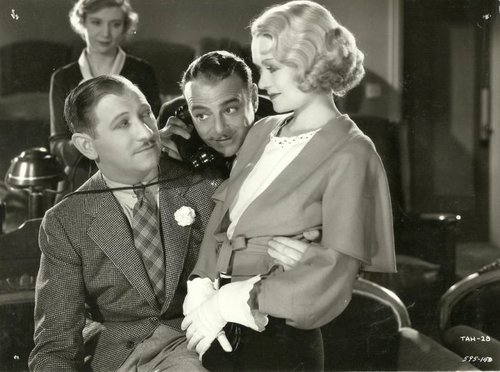
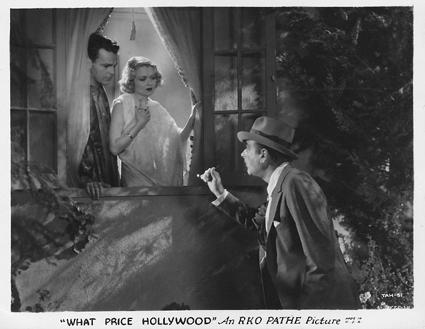
Wheeler Dealers, The*** 1963
http://www.imperialclub.com/Movies/Wheeler/index.htm
http://www.film.com/movies/the-wheeler-dealers/6153598
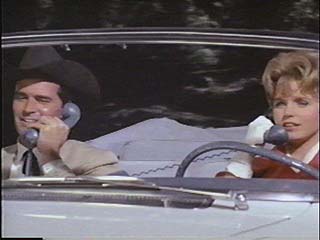
When Harry Met Sally**** 1989
http://corky.net/scripts/whenHarryMetSally.html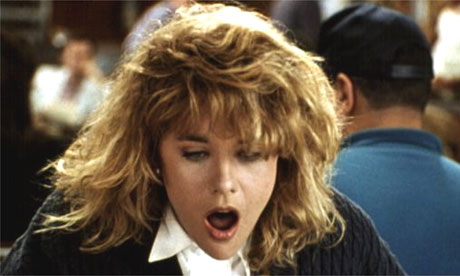
Harry Burns (Billy Crystal) and Sally Albright (Meg Ryan) share a long car ride from the University of Chicago to their new, post
graduation lives in NYC. En route, they discuss whether a man and a woman can be friends, without sex getting in the way.
Concluding that they cannot be friends, they part ways upon their arrival.
Five years later. Sally and Harry share a plane flight. Sally is now in a relationship with Joe (Steven Ford), while Harry is about to
get married to Helen (Harley Kozak). Once again, Harry explains why men and women can't be friends, even if they're in a
relationship with other people. They part ways again once the flight is over. Another five years later. Sally tells her friends, Marie
(Carrie Fisher) and Alice (Lisa Jane Persky) she and Joe broke up, while Harry tells his friend, Jess (Bruno Kirby) that Helen has left
him. Harry and Sally meet again, in a bookstore, and over dinner discuss their lives. Harry is surprised to realize he has a "woman
friend", and they go on to have late night phone conversations (about Casablanca, for example, and whether Ingrid Bergman should
have stayed with Humphry Bogart at the end of the movie), go to museums, and so on. Sally feels uncomfortable telling Harry she
is dating again, but he encourages her to do so, and tells her about his dates. They discuss his relationships with women, and Sally
fakes an orgasm at a diner, to show him it can be done. An older lady (director Rob Reiner's mom, Estelle Reiner) orders "what she's
having" for dinner.
Over dinner, Harry tries to match Sally to Jesse, while Sally tries to match Harry to Marie. Marie and Jesse end up together.
Four months later, Harry and Sally are shopping for Jesse and Marie's upcoming wedding, when the bump into Harry ex-wife.
Later, we learn that Sally is now dating Julian (Franc Luz), while Harry is dating Emily (Tracy Reiner), but when Sally learns that
her ex-boyfriend, Joe, is getting married to someone else, she calls Harry in the middle of the night. He comes over to comfort
her, and they end up having sex. Not sure how to handle the situation, Harry and Sally grow apart. At Jesse and Marie's wedding
they have a fight, but sometime later, during a new year's eve party, Harry comes over and tell Sally that he loves her. They kiss
and, later, get married.
Page last updated by chill_lizzie, 2 years ago
White Heat***** 1949
http://en.wikipedia.org/wiki/White_Heat
http://www.filmsite.org/whit.html
http://www.culturecourt.com/F/Crime/WhiteHeat.htm
Ranked by many as the greatest gangster film ever made. The classic gangster flicks of the thirties were
generally more action filled with stereotypical gang leaders, dimwitted sidekicks, and loud rapid-fire shoot-
outs. This film delves more deeply into the characters, in particular Cody Jarrett (Cagney) and his
mother, played by Margaret Wycherly. The Cody Jarrett character has three interesting components. Firstly
he has an overly strong attachment to his loyal mother, secondly he has episodes of maniacal headaches
which tender him debilitating and thirdly he can be absolutely ruthless and explosive in temperment.
Despite his shrewdness he is being fooled throughout the film by detective Pardo, which gives the movie
audience an insiders look at Jarrett's peril. Virginia Mayo is great as the gangsters unfaithful and greedy moll.
This film is landmark in 1950, as movies of this genre headed ito a darker era of more classic film noire
(The seedy "Asphalt Jungle" was made the same year).
Brutal, psychotic criminal Cody Jarrett trusts no one, least of all his unfaithful wife Verna and overly ambitious right-hand man Ed
Sommers; no one, that is, except his equally criminal mother, the only one who can soothe the blinding migraines that plague him.
Sent to jail on a charge he fakes to avoid conviction for the more serious crimes of train robbery and murder, Cody takes into his
gang smalltime crook Vic Pardo, who is in reality undercover cop Hank Fallon, sent to infiltrate the Jarrett gang. Cody controls his
gang from prison via instructions passed to his mother. Later, in the prison mess hall, Cody learns of Ma Jarret's murder. He goes
berserk, and it takes several guards to restrain him and drag him screaming from the room. He's put into a straitjacket and placed
in the prison clinic, from which he engineers an escape, taking "Pardo" along with him. After a botched payroll-robbery at an oil
refinery, Cody learns Pardo is a special agent and tries to kill him.
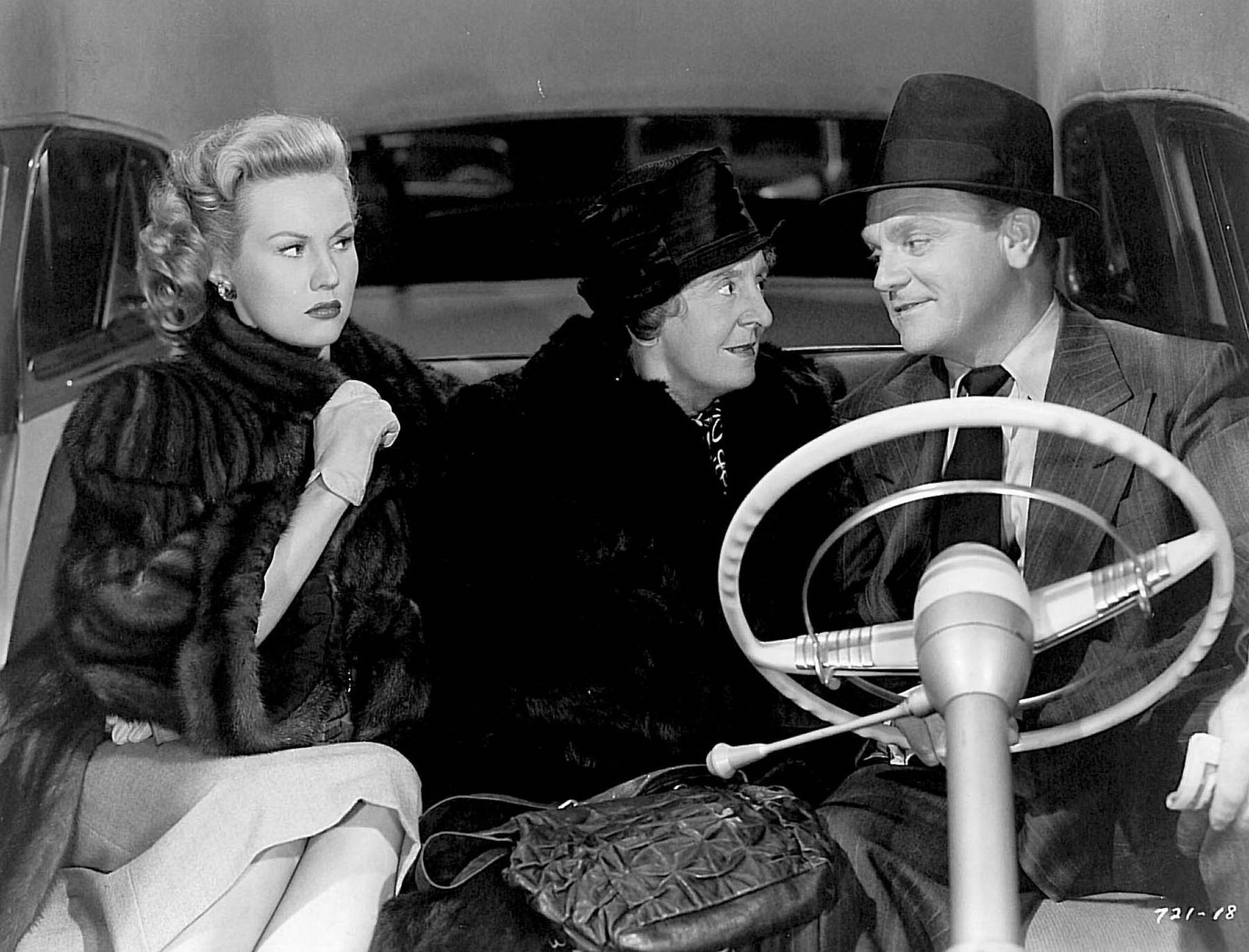
Why Shoot the Teacher?**** 1976
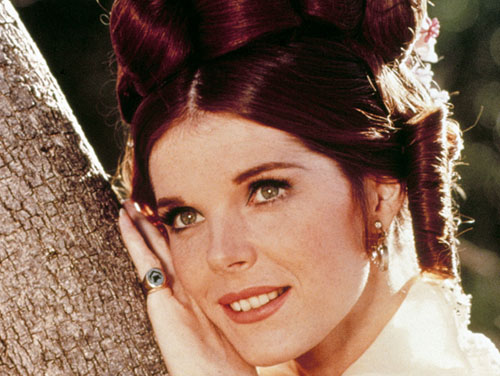
http://www.hollywood.com/movie/Why_Shoot_the_Teacher/22884
The Wicked Lady****1/2 1945
VIDEO
http://www.silversirens.co.uk/patricia-roc/film-clips/2/
http://en.wikipedia.org/wiki/The_Wicked_Lady
In the Seventeenth Century, in England, the naive and pure Caroline invites her cousin and best friend Barbara Worth to come from
London and stay with her a couple of days before her wedding with her beloved bridegroom, the wealthy magistrate Sir Ralph
Skelton. The selfish, evil and wicked Barbara uses her beauty and seduces the weak Ralph, who falls in love for her. Caroline calls
off the wedding and Barbara marries Ralph. When Barbara loses a jewel inherited from her mother gambling with Lady Henrietta
Kingsolver, she pretends to be the famous highway thief Captain Jerry Jackson, recovers her jewels and begins a career of crime
, looking for excitement stealing travelers in stagecoaches. When she meets the real Jerry Jackson on the road, she becomes his
passionate lover and also a killer. Meanwhile Ralph realizes that he loves Caroline, but it seems to be too late for their life together.
Written by Claudio Carvalho, Rio de Janeiro, Brazil
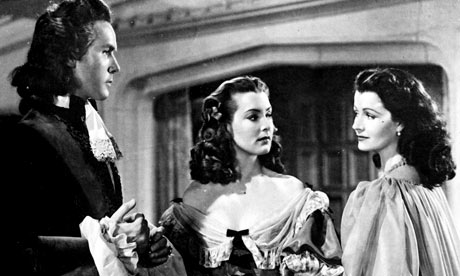
Wife vs Secretary**** 1936
http://www.tcm.com/tcmdb/title.jsp?stid=95804
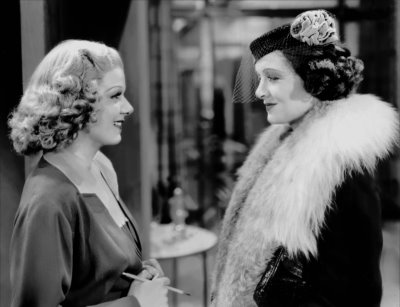
Magazine publisher Van Stanhope (Clark Gable) and his wife, Linda, (Myrna Loy) are celebrating their third wedding anniversary.
They are very much in love and Van gives Linda a diamond bracelet. However, Van's secretary, the beautiful Helen "Whitey"
Wilson (Jean Harlow), is thought by Van's mother to be a temptation to Van. Linda refuses to listen to all of her friends and Van's
mother as she trusts Van. In truth, she has all the reason in the world to trust him, as his relationship with Whitey is strictly
business.
Meanwhile, Whitey's beau, Dave (James Stewart), is very uncomfortable about her relationship with Van as he calls one night
while they're having dinner to ask that Whitey help him finish work at a party. When Dave asks Whitey to marry him, Whitey
refuses, and buries herself further in her work. When Van has to be very secretive to buy J. D. Underwood's weekly, for fear that
his rival will buy it instead, only Whitey is permitted to know, providing still more conflict between Van and his wife.
When Van returns from his business meeting with Underwood, and tells Linda that he has been at the club all day, Linda discovers
that he has not been at the club but rather has been out with Whitey, who was merely helping him prepare for his discussion with
Underwood. At a skating party, Linda is too sick to skate, but hears from one of the wives there that Van and Whitey are
most likely having an affair as Van and Whitey skate. When Linda and Van get into the car, they fight when Linda requests that
Van have Whitey moved to another employer. Van refuses and Linda ignores him for the rest of the evening until she calls him
back to make up. Van plans a trip for himself and Linda, but when he learns that Underwood is at a conference in Havana,
changes his plans and won't permit Linda to accompany him while he works. Whitey learns of important information regarding the
rival paper, which results in Van bringing her to Havana to close the deal. While celebrating the successful closing of the deal,
they develop a drunken attraction to each other but do not consummate this attraction. When Linda calls, Whitey answers the
phone, and she assumes they are having an affair. Van returns to New York only to have Linda ignoring him entirely and asking for
a divorce. Lonely, he asks Whitey to accompany him to Bermuda as a friend, which she, having fallen in love with Van, agrees to.
But realizing that Van will never love her as much as he loves Linda, she visits her on the boat that Linda has planned to take her
to Europe. Whitey tells her to go back to Van, telling her that she would be a fool to let him go. After resistance, Linda meets him
in his office and they make up. Whitey is then met by Dave where they make up as well.
Wild Strawberries**** 1957
http://www.criterion.com/films/175-wild-strawberries
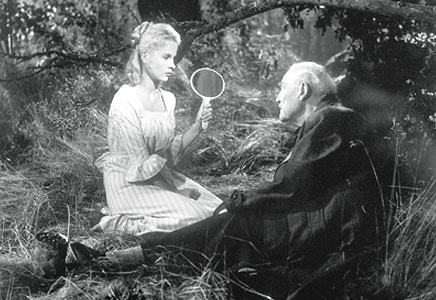
An old professor, being driven by his daughter-in-law to receive an honorary award at his university, takes a detour to his old
family home in the countryside where old memories and fantasies rehaunt him. ![]()
Wind, The****1/2 1928
http://en.wikipedia.org/wiki/The_Wind
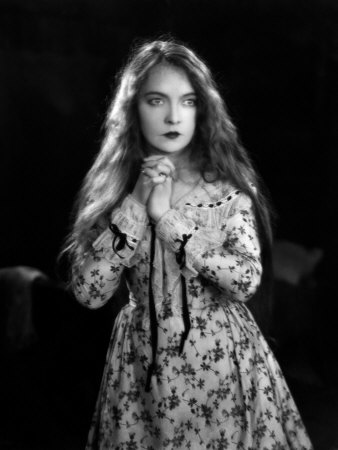
Letty moves to West Texas from the East and it seems that the wind always blows and the sand gets everywhere. While living
with relatives, she finds that she is not welcomed by the wife. With no where to go, she marries a man who disgusts her. Her new
home is a small shack with the wind and the sand constant companions. When it is necessary for most of the men to go out
into the sand storm, one stays back to have his way with Letty and that costs both of them. Written by Tony Fontana
<tony.fontana@spacebbs.com>
Wings**** 1929
http://www.filmsite.org/20sintro4.html
http://www.tcm.com/tcmdb/title.jsp?stid=504086&category=Notes
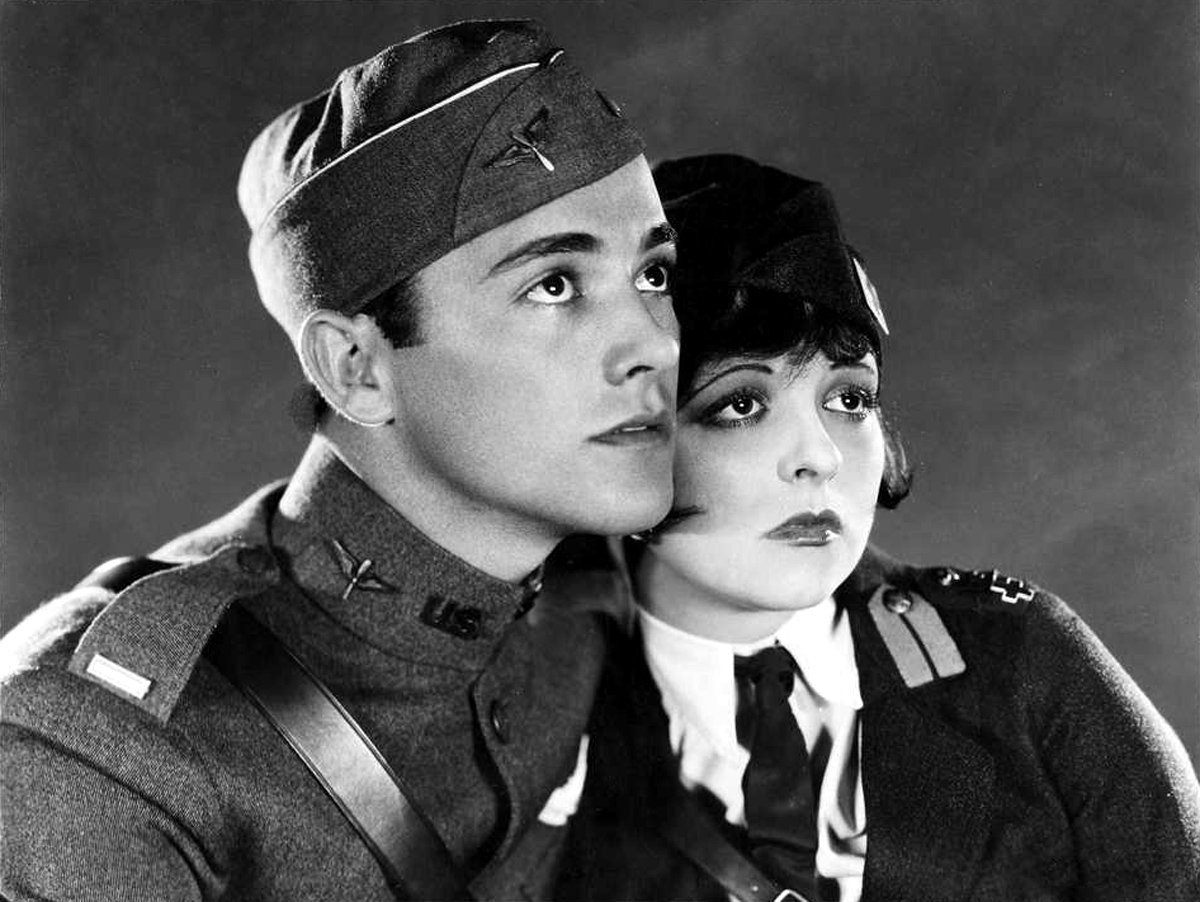
Jack Powell (Charles "Buddy" Rogers) and David Armstrong (Richard Arlen) are rivals in the same small American town, both vying
for the attentions of pretty Sylvia Lewis (Jobyna Ralston). Jack fails to realize that "the girl next door", Mary Preston (Clara Bow),
is desperately in love with him. The two young men both enlist to become combat pilots in the Air Service. When they leave for
training camp, Jack mistakenly believes Sylvia prefers him; she is too kindhearted to disillusion him, but lets David know that she
loves him. Jack and David are billeted together. Their tent mate is Cadet White (Gary Cooper), but their acquaintance is all too
brief; White is killed in an air crash the same day. Undaunted, the two men endure a rigorous training period, where they go from
being enemies to best friends. Upon graduating, they are shipped off to France to fight the Germans. Mary joins the war effort by
becoming an ambulance driver. When she is in Paris, she learns that Jack is on leave there. She finds him, but he is too drunk to
recognize her. She puts him to bed, but when two Military Police barge in while she is innocently changing out of a borrowed dress
back into her uniform in the same room, she is forced to resign and return to America. The climax of the story comes with the
epic Battle of Saint-Mihiel. David is shot down and presumed dead. However, he survives the crash landing, steals a German
biplane, and heads for the Allied lines. By a tragic stroke of bad luck, he is spotted by Jack, who is bent on avenging his friend.
Jack shoots David down. When Jack lands to pick up a souvenir, he becomes distraught when he learns what he has done, but
before David dies, he forgives his comrade. With the end of the war, Jack returns home to a hero's welcome. When he returns
David's effects to his grieving parents, David's mother blames the war, not Jack, for her son's death. Then, Jack is reunited with
Mary and realizes he loves her.
Wizard of Oz, The ***** 1939
http://www.guardian.co.uk/film/2010/aug/12/the-wizard-of-oz-google-doodle
http://en.wikipedia.org/wiki/The_Wizard_of_Oz_%281939_film%29
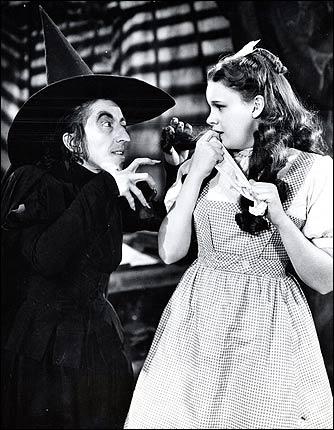
Dorothy Gale, a Kansas farm girl, lives with her Auntie Em and Uncle Henry. When Almira Gulch, who owns half the county, brings
a sheriff's order to take Dorothy's little dog Toto away to have the dog destroyed, because Toto bit Miss Gulch's leg, Auntie Em
and Uncle Henry refuse to go against the law, and they give the dog to Miss Gulch. However, as Miss Gulch rides away on her
bicycle with Toto in her basket, the dog escapes and returns home. Realizing that Miss Gulch will come back, Dorothy runs away
with Toto. They come to the wagon of the egotistical, but kindly Professor Marvel, a fortune-teller and balloonist, who tricks
Dorothy into believing that her aunt has had an attack because she ran away. Dorothy rushes home greatly concerned, but a
cyclone's approach causes her difficulty, and by the time she gets to the farm, Auntie Em, Uncle Henry and the three farmhands
have entered the storm cellar. Inside her room, Dorothy is hit on the head by a window and knocked unconscious. When she
revives, she sees through the window that the house has risen up inside the cyclone. When she sees Miss Gulch, traveling in mid-
air on her bicycle, transform into a witch on a broomstick, Dorothy averts her eyes. The house comes to rest in Munchkinland, a
colorful section of the Land of Oz inhabited by little people, and lands on top of the Wicked Witch of the East. Knowing that the
dead witch's ruby slippers contain magic, Glinda, the Good Witch of the North, through her powers, has them placed on Dorothy's
feet before the dead witch's sister, the Wicked Witch of the West, can retrieve them. The Wicked Witch vows revenge. Glinda
then suggests that the wonderful Wizard of Oz can help Dorothy get back to Kansas and instructs her to take the yellow brick road
to the distant Emerald City, where the Wizard resides. Along the way, Dorothy meets a friendly scarecrow who laments that he is
failure because he has no brain, an emotional tin man, who longingly describes the romantic life he would lead if he only had a
heart, and a seemingly ferocious lion who actually lacks courage. Dorothy suggests that they all go with her to ask the Wizard for
his help. With help along the way from Glinda to battle a spell of the Wicked Witch, the four friends reach the Emerald City,
where in the great hall of the Wizard, they see a terrifying apparition that identifies itself as "Oz" and lambasts Dorothy's
companions for their deficiencies. When the lion faints from fright, Dorothy rebukes the Wizard for scaring him, and the Wizard
agrees to grant their requests if they will first prove themselves worthy by bringing him the broomstick of the Witch of the West.
As they pass through a haunted forest on their way to the witch's castle, the witch sends an army of winged monkeys, who capture
Dorothy and Toto. In her castle, when the witch threatens to have Toto drowned, Dorothy offers the slippers in exchange for her
dog, but the witch cannot remove them, and she remembers that the slippers will not come off as long as Dorothy is alive. As the
witch ponders the proper way to kill Dorothy, Toto escapes. The dog leads Dorothy's friends to the castle, where they rescue her,
but the witch's guards soon surround them. After the witch sadistically says that Dorothy will see her friends and dog die before
her, she ignites the Scarecrow's arm. Dorothy tosses a bucket of water to put out the fire, and when some water splashes in the
witch's face, she melts. The guards and monkeys, relieved that the witch is dead, hail Dorothy and give her the broomstick. Upon
their return to Oz, the Wizard orders Dorothy and her friends to come back the next day. As they argue, Toto snoops behind a
curtain and pulls it back to reveal a man manipulating levers and speaking into a microphone, who then admits to the group that
he is really the "powerful" Wizard. Greatly disappointed and angry at the sham, Dorothy calls him a bad man, but he retorts that
while he is a bad wizard, he is a good man. He then awards the Scarecrow a diploma, the Lion a medal and the Tin Man a
testimonial, and states that where he comes from, these things are given to men who have no more brains, courage or heart than
they have. Confessing that he is a balloonist and a Kansas man himself, the Wizard offers to take Dorothy back in his balloon.
However, as they prepare to leave,Toto leaps from the balloon to chase a cat, and after Dorothy goes to retrieve the dog, the
balloon takes off without them. Glinda then comforts Dorothy and reveals that she has always had the power to return home, but
that she had to learn it for herself. Dorothy says that she has learned never to go further than her own backyard to look for her
heart's desire. After Dorothy tearfully kisses and hugs her friends, Glinda tells her to click the heels of the slippers three times
with her eyes closed and to think to herself, "There's no place like home." This she does, and she awakens to find Uncle Henry and
Auntie Em at her bedside. Professor Marvel, having heard that Dorothy was badly injured, comes by, and she begins to tell about
her journey, which Auntie Em calls a bad dream. The farmhands come in, and Dorothy remembers them as her three friends in Oz
and the professor as the Wizard. When Toto climbs on the bed, Dorothy says she loves them all and that she will never leave again,
and she affirms to her aunt that there is no place like home. ![]()
Wolf Man, The ***1/2 1941
http://classic-horror.com/reviews/wolf_man_1941
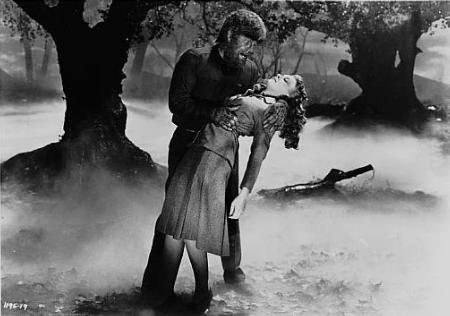
Larry Talbot (Lon Chaney, Jr.) returns to his ancestral home in Llanwelly, Wales to reconcile with his father, Sir John Talbot
(Claude Rains), after learning of the death of his brother. While there, Larry becomes romantically interested in a local girl
named Gwen Conliffe (Evelyn Ankers), who runs an antique shop. As a pretext, he buys something from her, a silver-headed
walking stick decorated with a wolf. Gwen tells him that it represents a werewolf (which she defines as a man who changes into a
wolf "at certain times of the year.") Throughout the film, various villagers recite a poem that all the locals apparently know,
whenever the subject of werewolves comes up:
- Even a man who is pure in heart
- and says his prayers by night
- may become a wolf when the wolfbane blooms
- and the autumn moon is bright.
That night, Larry attempts to rescue Gwen's friend Jenny from what he believes to be a sudden attack by a wolf. He kills the
beast with his new walking stick, but is bitten in the process. He soon discovers that it was not just a wolf; it was a werewolf,
and now Talbot has become one. A gypsy fortuneteller named Maleva (Maria Ouspenskaya) reveals to Larry that the animal which
bit him was actually her son Bela (Béla Lugosi) in the form of a wolf. Bela had been a werewolf for years and now the curse of
lycanthropy has been passed to Larry. Sure enough, Talbot prowls the countryside in the form of a two-legged wolf. Struggling to
overcome the curse, he is finally bludgeoned to death by his father with his silver walking stick. His father watches in horror as
his son transforms back into a human as the police rush to the scene.
Woman in the Window, The**** 1944
http://movies.msn.com/movies/movie-synopsis/the-woman-in-the-window/
After psychology professor[3] Richard Wanley sends his wife and two children off on vacation, he goes to his club to meet friends.
Next door, Wanley sees a striking oil portrait of Alice Reed (Joan Bennett) in a storefront window. He and his friends talk about the
beautiful painting and its subject, and they encourage Wanley to join them for a late evening. Wanley stays at the club and reads
Song of Songs. When he leaves, Wanley stops at the portrait and meets Reed, who is standing near the painting watching people
watch it. Reed convinces Wanley to join her for drinks. Later, they go to Reed's home, but an unexpected visit from her rich lover
Claude Mazard (Arthur Loft) leads to a fight in which Wanley kills Mazard. Wanley and Reed conspire to cover up the murder, and
Wanley disposes Mazard's body in the country. However, Wanley leaves many clues, and there are a number of witnesses. One of
Wanley's friends from the club, district attorney Frank Lalor (Raymond Massey) has knowledge of the investigation, and Wanley is
invited back to the crime scene, as Lalor's friend, but not as a suspect. As the police gather more evidence, Reed is blackmailed by
Heidt (Dan Duryea), a crooked ex-cop who was Mazard's bodyguard. Reed attempts to poison Heidt with a prescription overdose
when he returns the next day, but Heidt is suspicious and takes the money without drinking the drugs. Reed tells Wanley, who
overdoses on the remaining prescription medicine. Heidt is killed in a shootout immediately after leaving Reed's home, and police
believe Heidt is Mazard's murderer. Reed races to her home to call Wanley, who is slumped over in his chair. In a match cut,
Wanley awakens in his chair at his club, and he realizes the entire adventure was a dream in which employees from the club were
main characters in the dream. As he steps out on the street in front of the painting, a woman asks Wanley for a light. He adamantly
refuses and runs down the street.
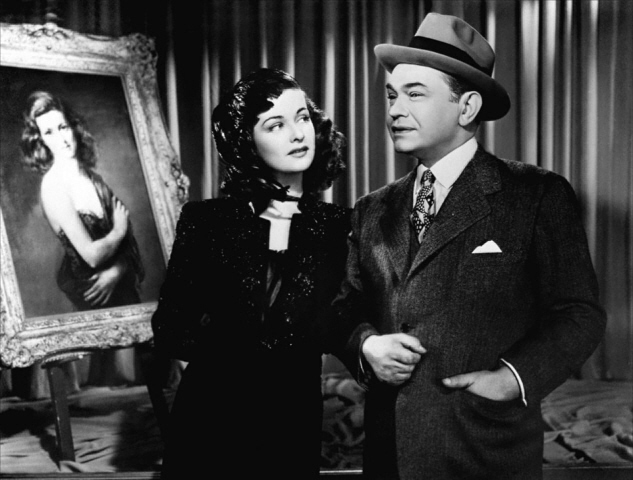
Woman in White, The**** 1948
http://www.1000misspenthours.com/reviews/reviewsn-z/womaninwhite1948.htm
Along a dark country road in Cumberland, England, a ghoulish woman in white steps from the shadows to confront a foot traveler,
Walter Hartright (Andrew Lincoln), bound for Limmeridge House three miles off. She asks senseless questions: "You don't suspect me
of wrong, do you, Sir? Why do you suspect me of wrong?" Hartright assures her he suspects her of no wrong, but she gibbers
on. When a carriage happens by, the woman dissolves into the darkness and Hartright accepts the offer of a ride the rest of the way
to Limmeridge House, a mansion where eccentric esquire Frederick Fairlie (Ian Richardson) has arranged for Hartright to tutor his
nieces -- half-sisters Marian and Laura Fairlie -- in the art of drawing. Soon, Hartright falls in love with Laura, a wealthy heiress.
Strangely, she is the near mirror image of the woman in white. Laura, in turn, falls in love with him. Marian, who wants only the best
for Laura, approves of the romance. Unfortunately, Hartright loses his job when falsely accused of bad conduct. Before he leaves
Limmeridge House, he warns Laura that she and her sister are in grave danger. Deeply disappointed in him, Laura ignores his caveat
and fulfills a pledge to marry Sir Percival Gylde (James Wilby). He seems amiable and even invites Marian to live with him and Laura
after the wedding. But when Laura returns from the honeymoon, she is melancholy and morose, hardly speaking a word to Marian.
Glyde and a sinister visitor named Count Fosco (Simon Callow) are the reasons. Apparently, they are plotting to seize her inheritance
using the tidiest of stratagems: murder. Meanwhile, dark secrets unravel involving Glyde's family background and the mysterious
woman in white, and Hartright returns in an attempt to save the sisters and exorcise the evil possessing Limmeridge House. ~ Mike
Cummings, Rovi
Review
This production's award-winning cinematography and lighting subtly and unobtrusively support its spooky story with gossamer fog,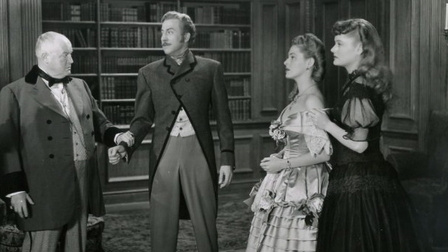
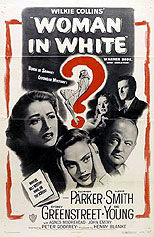
Working Girl***1/2 1988
http://www.fast-rewind.com/workinggirl.htm
VIDEO
http://www.youtube.com/watch?v=odR6tGpZTis
Tess McGill is a hard working young woman who is determined to reach the top of the stockmarket world by hard work but as she
turns 30 she is stuck in secretarial work so when she starts working for Katherine Parker she is glad that Katherine is willing to
accept input and ideas from her. However when Katherine goes on holiday and breaks her leg she asks Tess to look after things and
this causes Tess to discover that Katherine is going to pinch her big idea that would save a large company from a a foreign takeover.
Enraged that her boyfriend is also cheating on her, Tess sets out to do a deal by using her idea herself while Katherine is away. She
teams up with Jack Trainer to close the deal before Katherine's return and the two slowly fall in love little knowing that Jack is
Katherine's boyfriend... Written by Lee Horton <Leeh@tcp.co.uk>
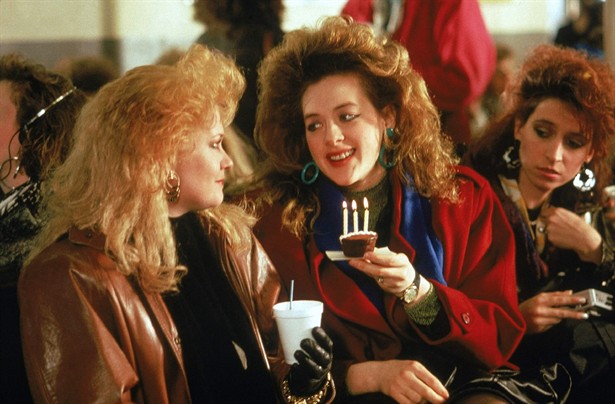
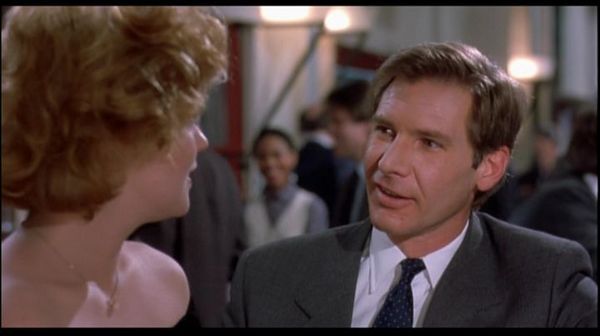
World's Fastest Indian, The**** 2005
http://www.solarnavigator.net/films_movies_actors/the_worlds_fastest_indian.htm
For 25 years in Invercargill at the south end of New Zealand, Burt Munro (1899-1978) has been working on increasing the
speed of his motorcycle, a 1920 Indian. He dreams of taking it to the Bonneville Salt Flats to see how fast it will go. By
the early 1960s, heart disease threatens his life, so he mortgages his house and takes a boat to Los Angeles, buys an old
car, builds a makeshift trailer, gets the Indian through customs, and heads for Utah. Along the way, people he meets are
charmed by his open, direct friendliness. If he makes it to Bonneville, will they let an old guy on the flats with makeshift
tires, no brakes, and no chute? And will the Indian actually respond? Written by <jhailey@hotmail.com>
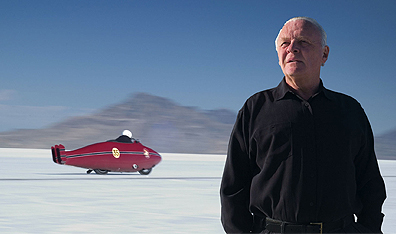
24.
Young Frankenstein***1/2 1974
http://en.wikipedia.org/wiki/Young_Frankenstein
http://www.youtube.com/watch?v=XTw1lzxTAis
http://www.youtube.com/watch?v=yH97lImrr0Q
http://www.youtube.com/watch?v=EAGA3_-Axfc
Over 30 years later this film still provides a ton of laughs to audiences.
It's always good to see the late Marty Feldman, whose face was hysterical and perfect for this film. In fact, he, along with the
camera-work, really make this film one to watch and enjoy multiple times. Teri Garr was at her best and never looked as pretty
as did in here. Add in the great talents of Gene Wilder, Madeline Kahn, Gene Hackman, Peter Boyle, Cloris Leachman, etc., and
you have a memorable movie with a lot of memorable scenes.
Looking at the Frankenstien "monster" in a tuxedo or sitting up in bed with a cigar reading The Wall Street Journal are just a
few of the outlandish scenes, along Wilder entering the mansion commenting on the "nice knockers."
Kudos, also, for Mel Brooks having the good sense to film this in black-and- white. It may have been his best film, although
"Blazing Saddles" would give it a run for its money. My only complaint was Wilder's constant yelling, which becomes abrasive and
can give you a headache after awhile! Still, this has to be considered one of the best "comedy classics" ever.
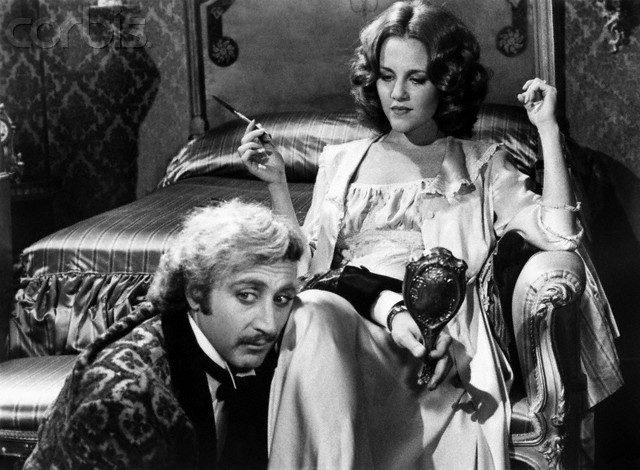
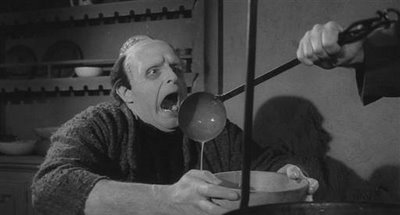
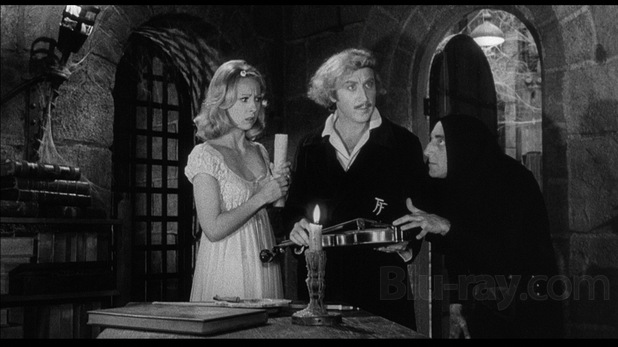
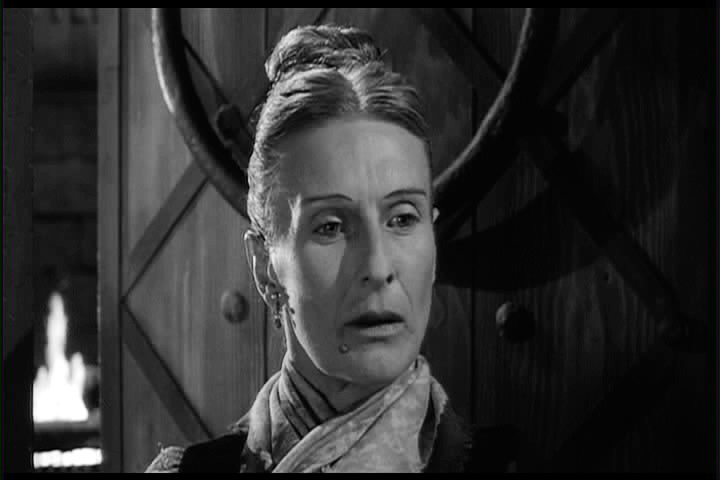
Young Philadelphians, The**** 1959
http://www.aintitcool.com/node/38040
http://en.wikipedia.org/wiki/The_Young_Philadelphians
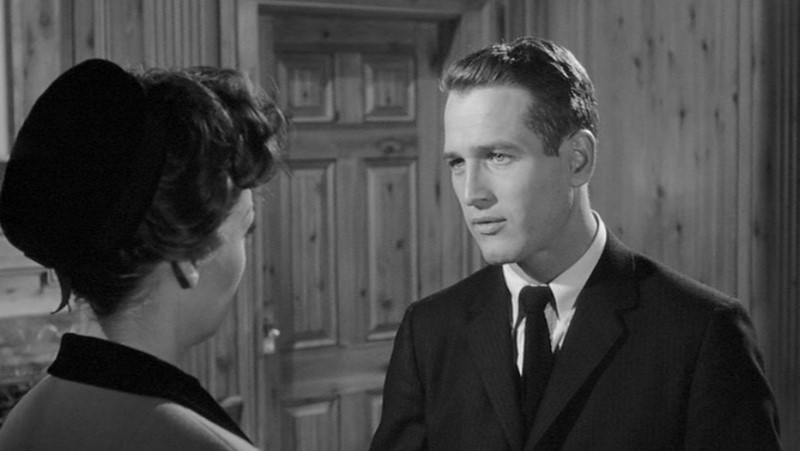
Something of an urbanized, upscale version of Peyton Place, Vincent Sherman's The Young Philadelphians is a glossy
adaptation of Richard Powell's bestselling novel. The Philadelphians that revels in melodrama. The film opens strongly,
with a lengthy 1924 prologue. Socialite Kate Lawrence (Diane Brewster) jilts impoverished lover Mike Flannagan (Brian
Keith) in favor of wealthy William Lawrence (Adam West). On their wedding night, William drunkenly announces that he's
impotent and commits suicide (this scene should fascinate Batman fans). Returning to Mike, Kate has a child by him,
Tony. The boy grows up amid an atmosphere of dire poverty, which imparts him with a relentless drive for success. Flash
forward to 1952: the out-of-wedlock kid, Tony, has grown up (now played by Paul Newman) and still doesn't know that he
was an illegitimate child. Tony attends Princeton Law School, and falls in love with rich girl Joan Dickinson (Barbara Rush).
Via the doings of Joan's father, wealthy Gilbert Dickinson (John Williams), Tony ends up taking a cushy job in a law office,
at the expense of the relationship. The heartbroken Joan marries Carter Henley (Fred Eisley) on the rebound, who is
conveniently killed in Korea. Tony then begins spending a prodigious amount of time with Carol Wharton (Alexis Smith),
wife of attorney John Wharton (Otto Kruger), so that she will persuade John to find Tony a better job. Soon it's Tony's
turn to fight in Korea; when he returns, the opportunity arises for Tony to redeem himself for his past misdeeds. Watch
for Richard "Mel Cooley" Deacon in a bit as a hostile witness. - Hal Erickson, Rovi
You Were Never Lovelier***1/2 1942
http://en.wikipedia.org/wiki/You_Were_Never_Lovelier
http://www.tcm.com/mediaroom/video/502715/You-Were-Never-Lovelier-Movie-Clip-The-Shorty-George.html
http://www.tcm.com/mediaroom/video/502733/You-Were-Never-Lovelier-Movie-Clip-I-m-Old-Fashioned.html
After losing his bankroll at a Buenos Aires racetrack, dancer Robert Davis attempts to ask hotel owner Edwardo Acuna for a job performing in his hotel's nightclub. Acuna
is busily picking out his eldest daughter Julia's trousseau, however, and refuses to see Robert. In Acuna's waiting room, Robert encounters his old friend, Xavier Cugat, who
is entertaining at the hotel with his band. Upon hearing of his friend's dilemma, Cugat suggests that Robert showcase his talent at Julia's wedding reception. Acuna has
decreed that his daughters must wed in the order of their ages, and consequently, his two youngest daughters, Cecy and Lita, anxiously await the betrothal of thier
romantically disinclined older sister Maria. Concerned about Maria's frigid demeanor, Acuna asks the advice of her godmother, Mrs. Maria Castro. When Mrs. Castro
responds that Maria needs to be intrigued by a man, Acuna decides to invent a mystery admirer for his daughter. Each day, he sends a box of orchids to his daughter,
accompanied by a passionate note signed "her unknown suitor." Acuna's scheme works, and soon Maria is looking forward to her daily deliveries. One day, Acuna is
shaving in his office bathroom when Robert sneaks into the office. Unable to see Robert, Acuna mistakes him for the delivery boy and instructs him to take the orchids to
Maria. After Maria sees Robert delivering the flowers, she thinks that he is her secret admirer and asks her father to invite him to the house. When Acuna explains the
situation to Robert and asks his help in disenchanting Maria, Robert agrees to cooperate in exchange for a dancing contract. Upon meeting Maria that night, Robert is
overwhelmed by her beauty and resists an impulse to kiss her by excusing himself to meet Cugat. The next day, Acuna insists that Robert honor their deal by convincing
Maria that he was only courting her to win a contract with her father. Upon discovering that Robert's name was omitted from the guest list of the Acunas' twenty-fifth
wedding anniversary costume ball, however, Maria and her godmother go to the rehearsal hall to invite him, and he accepts. When Acuna sees Robert at his party, he
angrily announces that the dancer will be leaving for New York the next morning. Still desperate to marry off their older sister, Cecy and Lita decide to make Robert jealous
so that he will refuse to leave for New York. To accomplish their goal, they send Fernando, Acuna's secretary, to cut in on Maria and Robert's dance. After Robert protests
and pushes Fernando into a fountain, the sisters admit their scheme, and Maria, embarassed, declares that she is not in love with Robert. Later, Robert escorts Maria into
the garden, where they confess their love for each other. When Robert tells Acuna that he is in love with Maria, Acuna warns him that Maria has fallen in love with an
ardent admirer. After threatening to expose Robert, Acuna offers to compose a farewell note to Maria. As Acuna recites his romantic composition, his wife Delfina enters the
room and, hearing her husband extolling the virtues of Maria, assumes that he has fallen in love with Maria Castro. When Delfina accuses her husband of infidelity, Mrs.
Castro's husband Juan challenges him to a duel. To prevent bloodshed, Robert reveals Acuna's fabrication. Humiliated, Maria rejects Robert and storms out of the room.
Maria's outburst convinces Acuna that his daughter really loves Robert, and he grants the dancer his permission to court her. When a room-sized load of orchids fails to
convince Maria to change her mind, Robert takes Acuna's suggestion, and dresses up as a knight in shining armour. After he falls off his horse, Maria forgives him, and they
begin to dance. Delighted, Lita and Cecy don their boyfriends' engagement rings.
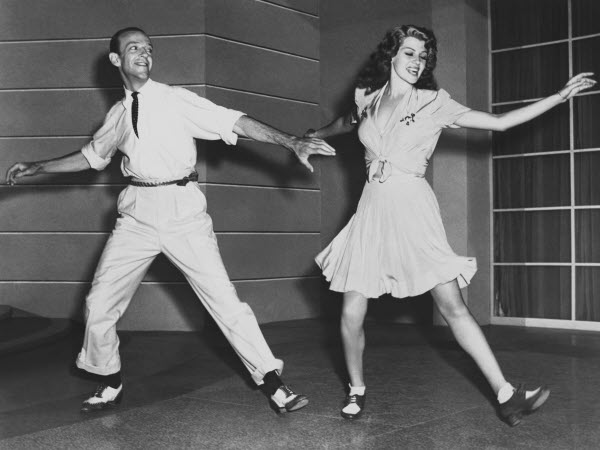
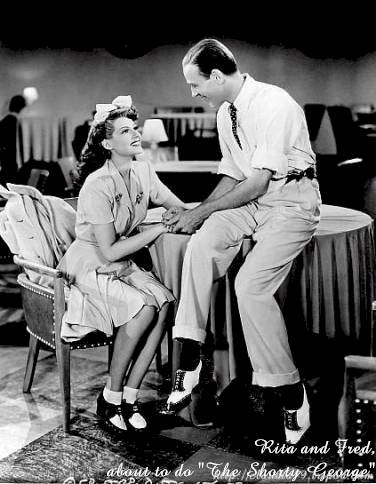
3.
Z ****1/2 1969
http://www.film.com/features/story/whats-big-deal-z-1969/39986266
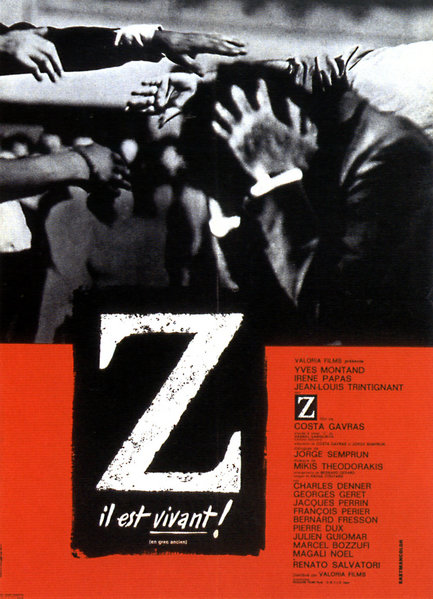
During a speaking engagement coinciding with an appearance of the Bolshoi Ballet, pacifist Deputy Z., the target of a
right-wing military conspiracy, is assassinated by homosexual reactionaries Vago and Yago, and Z.'s supporters are
brutally beaten by thugs before indifferent police. When an autopsy discloses that Z. was not killed by a hit-and-run driver,
but bludgeoned to death, the deputy's supporters demand an investigation. In response, seemingly apathetic local
authorities appoint as investigating magistrate a career civil servant, who, to the surprise of all, proves to be
incorruptible. In his investigation the magistrate is assisted by a fiercely independent journalist and by a courageous
eyewitness, the casket-maker Nick. Although Nick is offered bribes by civil authorities, he refuses to change his story.
Hospitalized as a result of an assault and reproached by his sister, Nick sticks to his story. As a result, the military
conspiracy is exposed, Vago and Yago are convicted, and Z.'s party is victorious in the general election. High army
officials, however, are given suspended sentences, and several months later the military accomplish a coup d'état,
imprison dissidents, and interdict long hair, miniskirts, the Beatles, several major authors, references to Socrates'
homosexuality, and the letter "Z," which in the ancient Greek means "he lives." ![]()
Zelig**** 1983
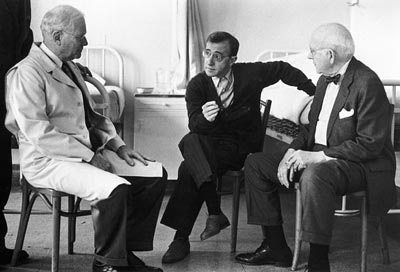
Set in the 1920s and 1930s, the film focuses on Leonard Zelig, a nondescript man who has the ability to transform his
appearance to that of the people who surround him. He is observed at a party by F. Scott Fitzgerald, who notices that
while mingling with the guests, Zelig sings the praises of the affluent classes in a refined, snobbish accent, but while in
the kitchen with the servants, he seethes with rage at the fat cats in a thick proletarian voice. He soon gains
international fame as a "human chameleon". Dr. Eudora Fletcher (Mia Farrow) is a psychiatrist who wants to help Zelig
with this strange disorder when he is admitted to her hospital.[1] Through the use of hypnotism, she discovers Zelig
yearns for approval so strongly he physically changes to fit in with those around him. Dr. Fletcher's determination allows
her to cure Zelig, but not without complications; she lifts Zelig's self-esteem but much too high and thus he temporarily
develops a personality which is violently intolerant of other people's opinions. Dr. Fletcher realizes she is falling in love
with Zelig. Because of the media coverage of the case, both patient and doctor become part of the popular culture of
their time. However, fame is the main cause of their division; the same society that made Zelig a hero destroys him.
Zelig's illness returns, and he tries to fit in once more. Numerous women claim he married them, and he disappears. Dr.
Fletcher finds him in Germany working with the Nazis before the outbreak of World War II. Together they escape and
return to America, where they are proclaimed heroes (after Zelig, using his ability to imitate one more time, mimics
Fletcher's piloting skills and flies back home across the Atlantic upside down).
Zero Hour*** 1957
http://www.tcm.com/thismonth/article/?cid=33769
http://blog.moviefone.com/2010/05/26/ watch-this-airplane-was-a-

Airplane! fans should run, don't walk, to their nearest video store and grab a copy of Zero Hour! You see, Airplane! isn't a
spoof of later disaster films like Airport, oh no. It's an almost scene-for-scene recreation of this little gem, though
Airplane! adds in a few extra sequences here and there, mainly to bring the film up to date. If you've seen Airplane!, you
know the story: Passengers and two pilots on a commercial flight get deathly ill from tainted airplane food (here it's 'the
fish'), leaving passenger Ted Styiker (Dana Andrews) to land the plane with support from the ground, talking him down.
Too bad he's still shell shocked from World War II, complete with flashbacks. Think he'll bring 'em down alive? I have no
frame of reference for how good a film this might be in the absence of Airplane!, but watching it now is a real treat.
Hearing lines like 'Looks like I picked the wrong week to give up smoking!' (delivered by a perfectly spoof-worthy Sterling
Hayden) are almost musical to hear. Spoof classicity aside, the film is actually well-paced, fun to watch, and genuinely
tense at times. It's a hit!